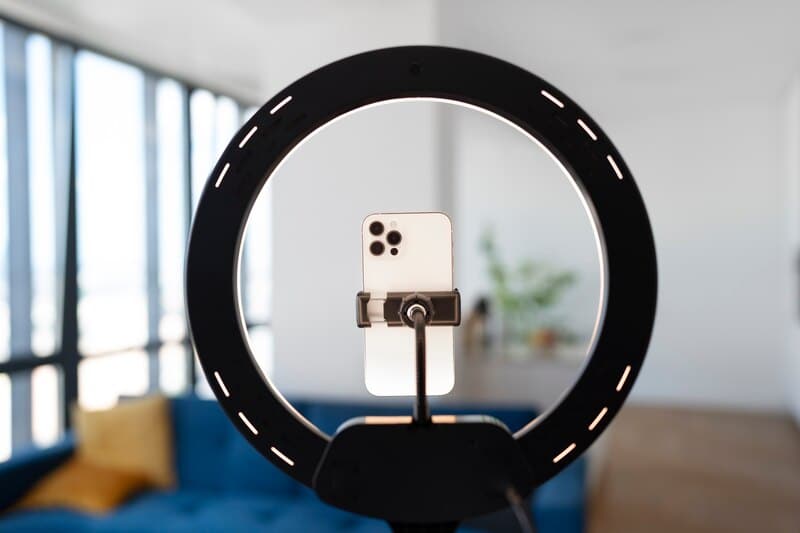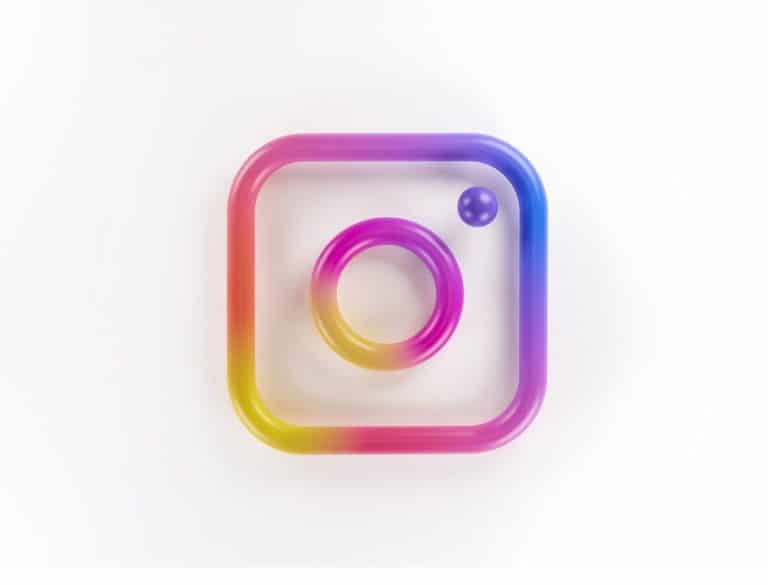TikTok is a social media platform created in 2016 with more than 1 Billion users that allows them to create and share short-form videos with others. While there are many potential benefits to using TikTok, there are also some concerns about its impact on users.
Yet there are downsides, as there are with most social networking programs. Perhaps you’ve heard about the negative aspects of TikTok and it’s made you reconsider utilizing it.
Here are some reasons why some people may consider TikTok to be bad for everyone:
1. China’s Influence Raises Worries About Personal Information Secrecy
Although it would be hasty to generalize about all Chinese applications, TikTok has certainly had more than its share of problems. TikTok’s parent firm, Chinese digital giant ByteDance, has been at the center of several accusations. Concerns have been raised that the Chinese government may be able to gather and abuse user data or promote propaganda on TikTok due to the strong link between the Chinese government and firms operating in the country.
Are there negative aspects of the TikTok app? It’s awful enough that it’s prompting government authorities to take such drastic measures.
Because the Indian government deemed TikTok “prejudicial to sovereignty and integrity of India, defense of India, security of the state, and public order,” it became the first country to ban the app in June 2020.
Due to the problems in Hong Kong, Reuters “got out” by 2020.
After then-president Donald Trump claimed to have information that ByteDance “could take action that threatens to undermine the national security of the United States,” in August 2020, the United States government came within a hair’s breadth of banning TikTok in America.
According to The Guardian, the United States banned TikTok in December 2022 on all government-owned devices.
In 2022 as well, the BBC reported that TikTok had been banned in Taliban-controlled Afghanistan for “guiding Afghan teenagers astray.”
Due to these scandals, regulatory authorities throughout the world have begun looking more closely at the app, with some considering outright banning it. TikTok insists it is neither owned or controlled by the Chinese government, and that all user data is stored in the United States or Singapore, not China. TikTok will undoubtedly continue to face scrutiny and hurdles in the future years as the debate surrounding the company’s Chinese influence remains a big concern.

2. The Risks of Using TikTok to Make Videos
Using the short-video-formatting app TikTok for more than 90 minutes per day has been related to lower attention spans, as reported by The Independent.
When the situation deteriorated, TikTok was compelled to take corrective measures. Pop-up warnings and the like were included alongside the hiring of celebrities like Gabe Erwin, Alan Chikin Chow, James Henry, and Cosette Rinab to urge users to take a break and put down the screen for a while.
Although anybody should avoid using an app that might cause permanent brain damage, this is especially important to consider with respect to TikTok because of the demographics of its users. More than 60% of TikTok users are “Gen Zers,” which means they are between the ages of 11 and 26; nevertheless, human brain development is not complete until the age of 25.
3. Censorship is rampant on TikTok.
The moderating of TikTok is chaotic, and widespread censoring is a major problem.
Some already-excluded groups, for instance, have grown much more so due to the difficulty associated with removing tags. Those who made films denouncing racism saw a decline in views for other posts, the users said. There is no set of taboo terms to avoid using. The moderating staff’s AI or human management remains a mystery.
Don’t discount any of this on the basis of rumor. In March of 2020, The Intercept obtained internal TikTok papers that instructed moderators to remove content from people who were “too ugly, impoverished, or handicapped.” The situation is worsening, not improving.
4. Problems with TikTok Challenges
Online competitions are nothing new. These can be a lot of fun while also helping to fundraise for worthwhile causes, and many people participate in them. Who could forget viral sensations like the “ice bucket challenge” and “mannequin challenge”?
But, a few of them venture into potentially harmful terrain, which raises concerns. Planking was an early craze that saw people putting themselves in dangerous situations (atop buildings or on railway tracks, for example) in order to capture a photograph on Instagram.
TikTok has revolutionized the concept of risky tasks. There have been home fires caused by the “penny challenge” in which a penny is dropped into an electrical socket, and injuries have been reported from the “skull breaker challenge,” in which participants are purposefully tripped. Very nasty wounds.
The “devious licks” contest is another option. Students are being encouraged to steal from or damage school property as part of the challenge. Many students have been taken into custody, and the cost of repairing the damage to school property has been borne by the respective institutions.
All of this makes TikTok completely unsuitable for children, and yet children continue to use it.

5. TikTok Has Questionable Data Collecting Practices, at Best
Most smartphone owners now assume, for better or worse, that every app they use tracks their activity in some way. While social media has always been a major contributor to this problem, TikTok’s data mining practices stand out for their dystopian potential.
According to its privacy policy, TikTok gathers “information you supply in the course of authoring, delivering, or receiving messages.” Indeed, even if you don’t send a message, TkTok can read anything you type in the chat window with your pals.
Furthermore, it asks to access your phone’s model, screen resolution, operating system, phone number, email address, location, typing patterns, and contact lists. If all you care about is watching quick video, none of it will matter.
To suggest that TikTok poses a threat to your privacy is not an exaggeration.
6. Security Flaws Caused by Users
TikTok has taken some heat for how it handles user data and privacy concerns. Users’ location, contact lists, and message content are just some of the sensitive details the program gathers. Privacy-wise, this sort of extensive collecting is dangerous, and it might even compromise your safety.
Hackers have previously targeted TikTok, gaining access to personal information including passwords and phone numbers. TikTok’s moderation policies have also come under fire from users who claim the app facilitates the distribution of extremist, anti-Semitic, and false material.
In addition, several researchers in the field of cyber security have discovered flaws in the TikTok app. The exploitation of short messaging service (SMS) texts by hackers to obtain access to user accounts is only one example; other examples include problems with video streaming over HTTP and HTTPS.
TikTok’s Harmful Effects on Young Users
There is an abundance of studies showing the negative effects of social media on one’s mental health. There are several ways in which your brain might be harmed. Typical examples of online evils like harassment, abuse, and cyberbullying abound.
The issue, however, goes far deeper than that. Several younger users, for example, have posted sexually suggestive stuff, and there have been reports of exes trying to destroy their ex’s life by posting intimate images and videos of themselves.
Users will feel the effects of this in the real world. Five Egyptian women who posted films to TikTok were recently given two-year jail terms for “violating public morality.”
There is also a constant flow of bigotry of all kinds, including anti-Semitism, racism, and xenophobia. In other cases, ISIS members have even used it to spread their extreme messages.
Any of these problems may drive you in an undesirable direction. Avoid forcing oneself into dangerous situations.
For what purpose do people use TikTok?
For the most part, TikTok functions as a social networking platform where users may make, share, and watch short films. You can discover filters, effects, and music overlays to give your videos a professional edge, but the app’s primary use is for the production and dissemination of creative and amusing material like lip syncs, dances, and comedy sketches. But it’s not the only place to watch short videos.
Worried about TikTok’s controversy? Try one of these excellent substitutes. Some alternatives to TikTok include the apps listed below.
With the help of Triller, a social media app, users can make their own mini-music videos to share with friends. It caters to an ever-expanding audience and features several imaginative resources.
Users of the social networking app Dubsmash may make their own lip-synced music videos to share with friends and followers.
Instagram Reels is a feature of the widely used photo-sharing app that, like TikTok, lets users make and share short movies, but with improved privacy and moderation controls.
And now, with YouTube Shorts, users can make and upload even shorter films to share with friends and family. It has an extensive network of artists and a wide variety of useful resources.
Get Rid of TikTok Now
As users became aware of what they saw to be questionable business practices at Facebook, they moved to social media with the hashtag #DeleteFacebook in 2018.
While Facebook is certainly not without fault and justly deserves scrutiny for its actions in recent years, TikTok is much worse.
The gist of it is straightforward. You shouldn’t be a member, don’t download the app, and don’t try to get others to join.













